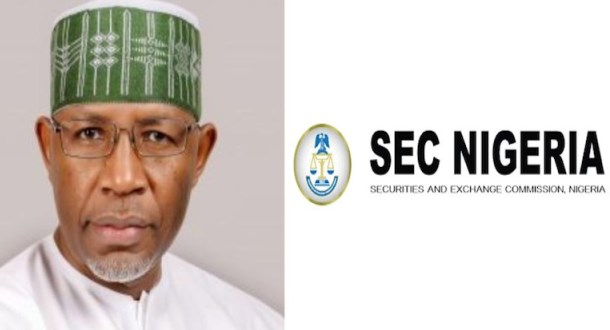The Securities and Exchange Commission has vowed to continue to crack down on Ponzi schemes and illegal fund managers amid the recent resurgence of their activities.

Mr Lamido Yuguda, the Director-General, SEC, made the pledge at an enlightenment workshop and investor clinic session with the Federal Ministry of Finance, Budget and National Planning and its agencies in Abuja this week.
He was quoted in a statement as saying, “The Nigerian financial sector is experiencing a resurgence of Ponzi schemes and illegal fund managers.”
According to him, they lure subscribers by making promises of huge and unjustifiable returns on investment and still enjoy massive patronage from Nigerians.
He added that the problem remained a concern for financial sector regulators.
Yuguda said, “Thus, the commission is poised to continue to apply measures and seek the cooperation of relevant stakeholders to combat the activities of these unlawful schemes, which have undermined the reputation of our financial markets and dampened investors’ confidence, among other things.
“The SEC firmly believes that the Nigerian capital market can attain its potentials if market operators/participants contribute their respective quotas to the growth of the market.”
He expressed SEC’s commitment to ensuring and maintaining an environment enabled by the appropriate regulatory framework, timely and affordable access to market, zero-tolerance for infractions, heightened investor confidence and awareness, innovative product development and good governance practices.
Yuguda added that there was an urgent need to restore investor confidence and improve the participation of retail investors in the capital market, as the demographics of current investors showed that youths shunned the market.
During her speech, the Minister of Finance, Budget and National Planning, Mrs Zainab Ahmed, encouraged investors to take advantage of the initiatives set out in the 10-year master plan of SEC.
Ahmed, represented by the Director, Home Finance at the ministry, Mr Stephen Okon, said the enlightenment programme rhymed with the SEC’s master plan.
She was quoted as saying, “It is worthy to know that the SEC marked out a 10-year plan for the development of the Nigerian capital market.
“The objective is to devise strategies for the development of the Nigerian capital market in key areas such as investor protection and integration, professionalism and product innovation and the expansion of the capital markets role in Nigeria’s economy.”
She noted that the SEC deemed it fit to host members of staff of the ministry and its agencies in a capital market training procession and workshop with investors.
“This event is to share knowledge on the capital market as well as obtain feedback from such bodies as a medium on the exchange of ideas and feedback to SEC on how to continuously improve on the market activities and regulations that are central to Nigeria’s request for implementation and achieving sustainable development,” Ahmed added.



















































